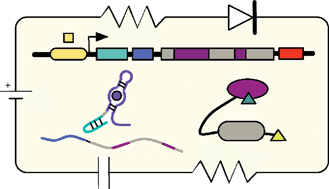Synthetic biology has been used to describe many biological endeavors over the past thirty years—from designing enzymes and in vitro systems, to manipulating existing metabolisms and gene expression, to creating entirely synthetic replicating life forms. What separates the current incarnation of synthetic biology from the recombinant DNA technology or metabolic engineering of the past is an emphasis on principles from engineering such as modularity, standardization, and rigorously predictive models. As such, synthetic biology represents a new paradigm for learning about and using biological molecules and data, with applications in basic science, biotechnology, and medicine. This review covers the canonical examples as well as some recent advances in synthetic biology in terms of what we know and what we can learn about the networks underlying biology, and how this endeavor may shape our understanding of living systems.
You have access to this article
 Please wait while we load your content...
Something went wrong. Try again?
Please wait while we load your content...
Something went wrong. Try again?


 Please wait while we load your content...
Please wait while we load your content...